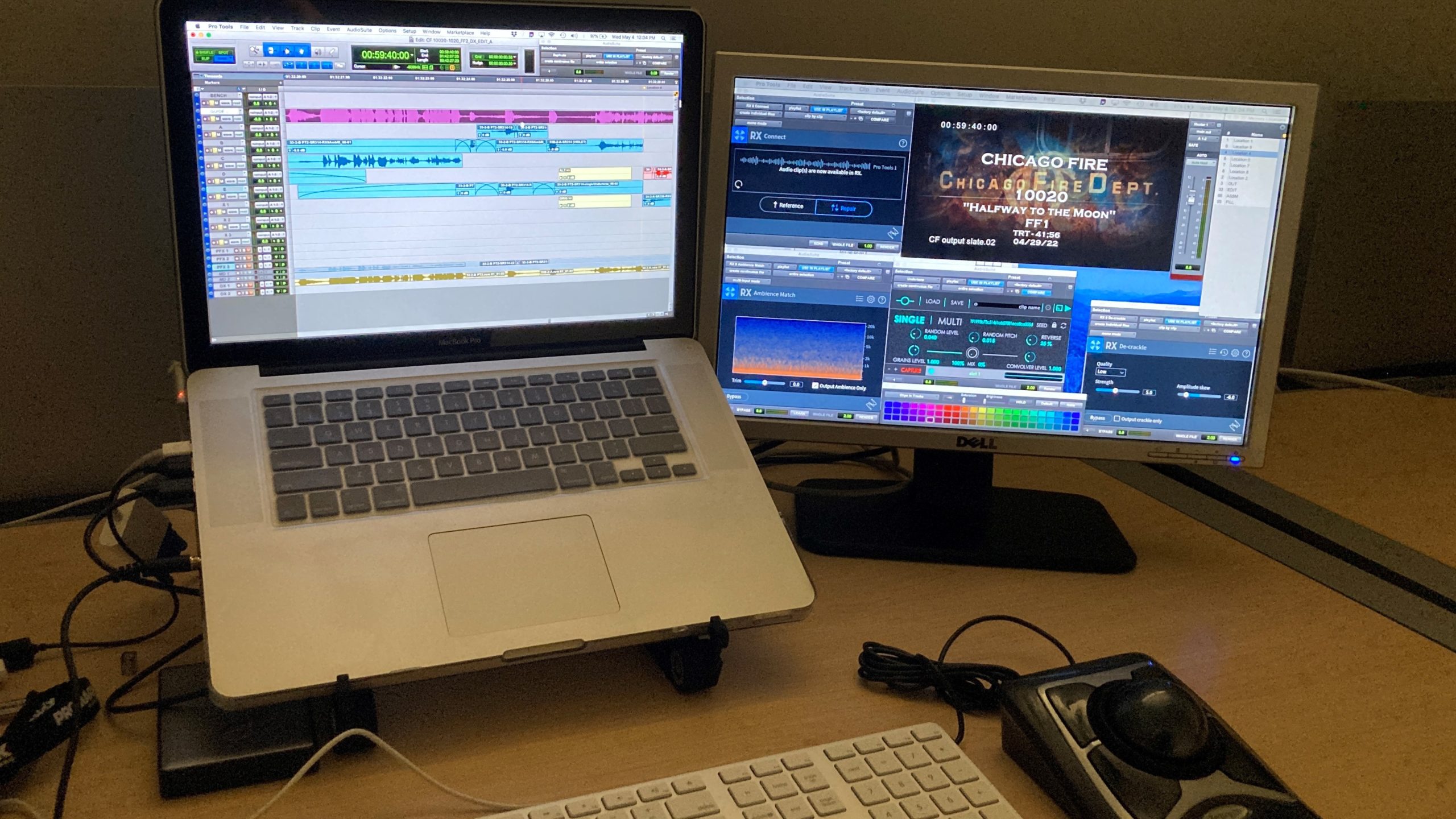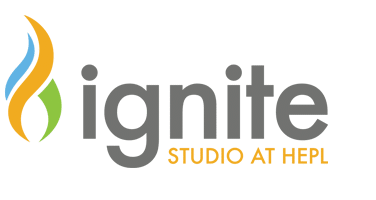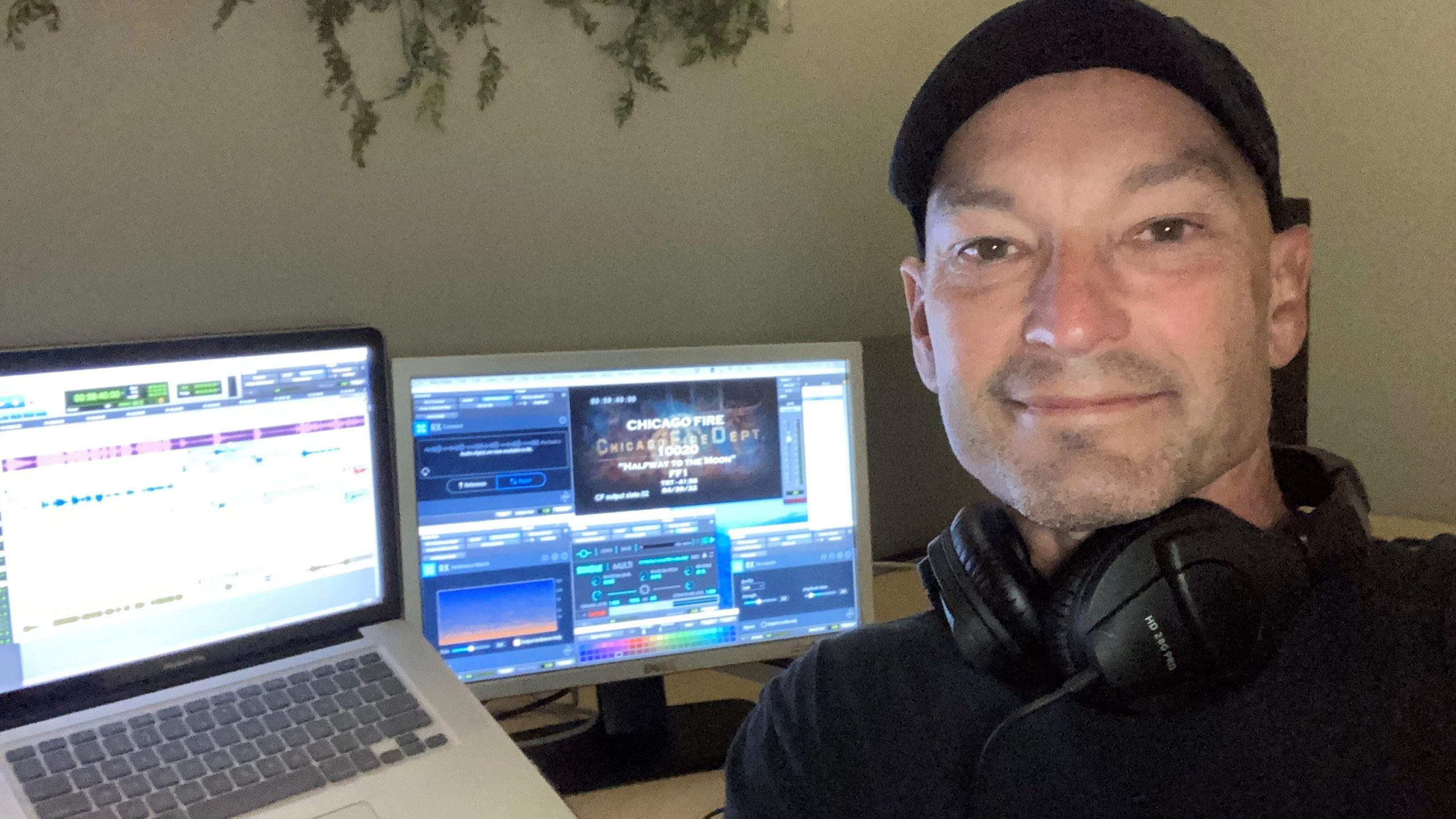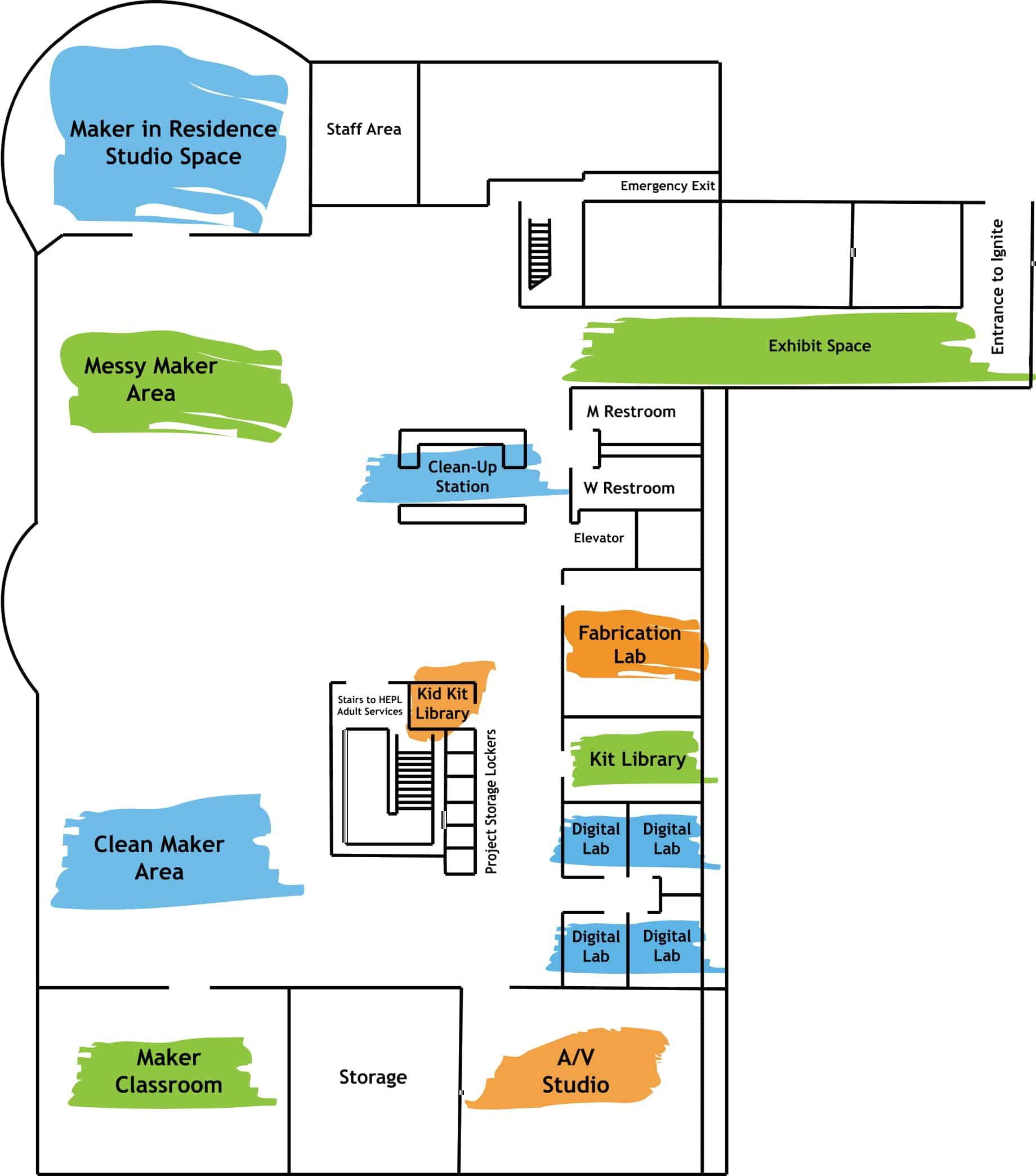by Kris Hurst
Ignite Studio’s maker spotlight is back to highlight Ignite super-user Fredrick Stahly. Hamilton County resident Frederick Stahly’s IMDb page lists a range of professional credits. He has an Emmy nomination and two Golden Reel awards for his work. His resume includes such films as A Star is Born and Bourne Ultimatum and current TV shows, Netflix’s Lost in Space and NBC’s Chicago Fire and Chicago PD. He will be teaching classes this summer and hopefully more in the future. He frequents the Ignite space, and can be found regularly in our Digital Media Labs. We ask Fred a few questions about his work and process.
Q&A with Maker Spotlight: Fredrick Stahly
When did you first become interested in sound and dialogue editing?
I first became interested in sound editing for film while in post-graduate studies at Full Sail Center for the Recording Arts (now called Full Sail University). I was studying to be a music recording engineer and while taking a required video class, I found myself sweetening (enhancing) and repairing the audio in our video projects.
Do you have any formal training or are you self-taught?
I did receive formal training in the aesthetics of sound at Purdue University while studying theater sound design and using studio quality equipment at Full Sail. As for the technical aspects of editing, I learned by trial and error, peers and co-workers. I am still learning today from peers, seminars and experimentation.
What kind of projects are you currently involved in?
I am currently finishing up my fourth season of NBC’s Chicago Fire and Chicago PD
What is the process of editing like? What are the steps involved?
There are lengthy books on the subject, but my process in dialogue editing is to receive the multi channels of audio recorded on the set during filming, remove unwanted noises, repair the dialogue so that it flows smoothly and return the edited dialogue to be mixed with the rest of the audio from the post process.

How long has it taken you to feel confident in your abilities in sound and dialogue editing?
I am confident that I want to be the best editor that I can. However, I’ve been doing this for almost 25 years, and I still come across situations where I am questioning myself. At that point, I will ask advice of other peers or experiment. I think if you become too confident you might become complacent and therefore have a tendency to stop learning and pushing yourself.
What drew you to the Ignite Studio?
I came into Ignite Studio because I used to use the space long ago as Launch Fishers. I was overwhelmed with the transformation to find so many tools for all types of creative possibilities.
How easy or hard was it to learn the equipment you use in Ignite?
I have a pretty strong background in use of recording studio equipment, so the transition to the Ignite equipment was fairly easy. But for someone starting out, I believe there are online tutorials on most of the tools available in the Ignite Studio.
Any advice for those interesting in sound and dialogue editing?
My advice for someone interested in sound and dialogue editing is to listen to as much completed work (TV /Film); utilize the tools in the Ignite Studio to work on your own projects, volunteer to help with a student project, wedding or podcast and to re-listen to your work with an audience.
Sign up to take a class with Fredrick Stahly by visiting Ignite’s event calendar. Join us on June 12 or July 10 for his class “Sound for Motion Picture, Television, and Film.”


